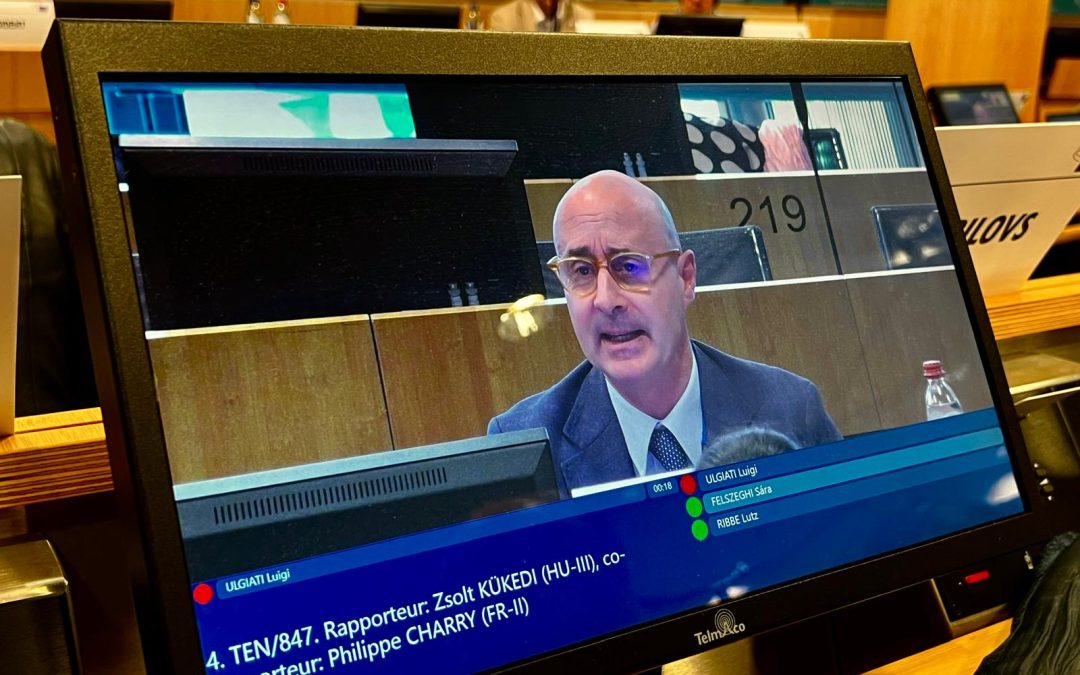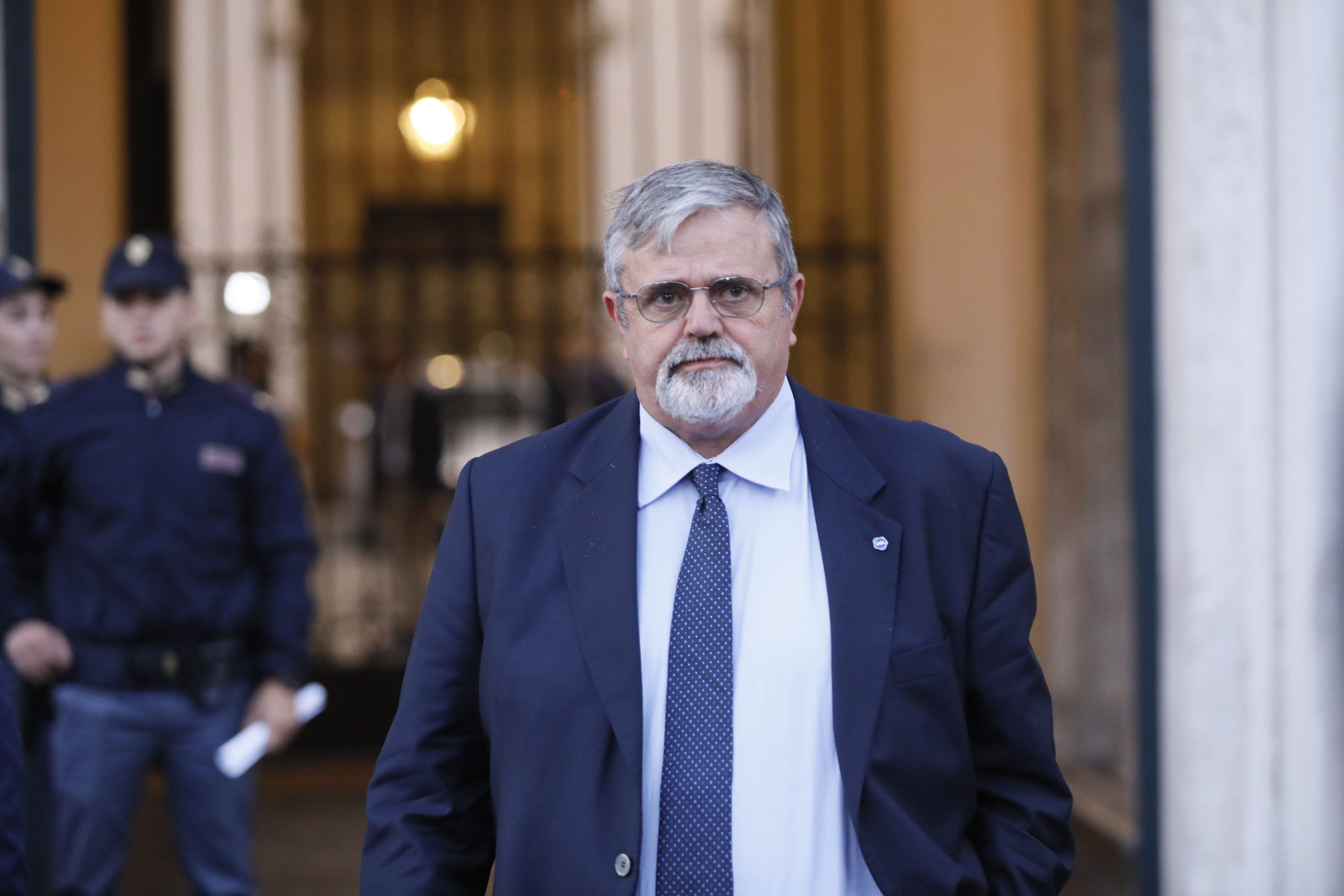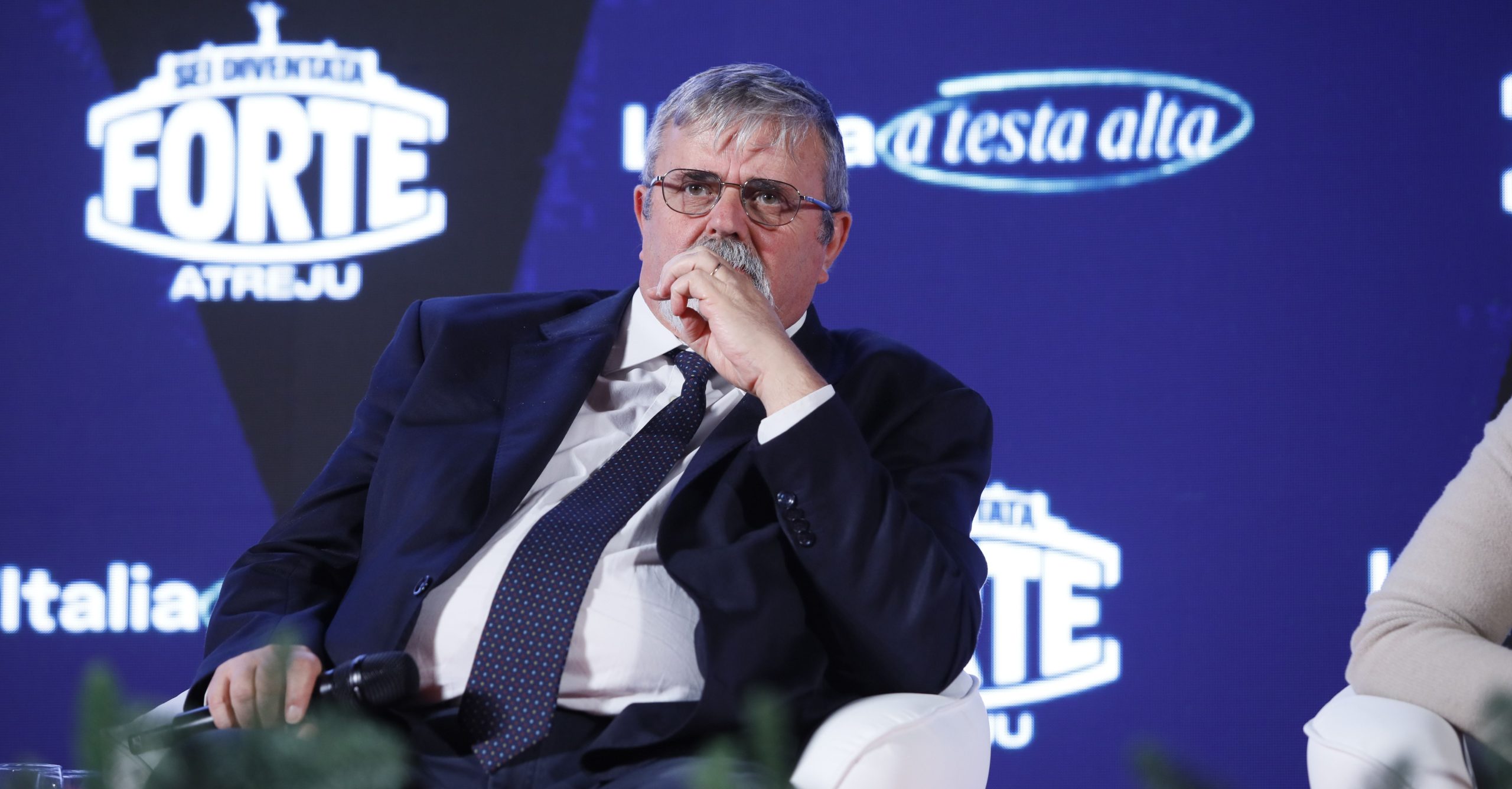IT:
CESE: IL CONSIGLIERE ULGIATI ALLA RIUNIONE DELLA SEZIONE TEN
Il 27 Maggio si è svolta a Bruxelles la riunione della Sezione Trasporti, Energia ed Infrastrutture del Comitato Economico e Sociale Europeo (CESE), a cui ha partecipato il Consigliere Luigi Ulgiati, intervenendo riguardo all’adozione del Parere TEN/847 relativo ad un sistema energetico europeo equilibrato. Per il CESE il sistema energetico europeo è sempre più sbilanciato a causa di fonti rinnovabili intermittenti, come l’eolico ed il solare, sensibili alle condizioni meteorologiche, che spesso dipendono dai combustibili fossili per la stabilità. Il raggiungimento dell’equilibrio è fondamentale per l’affidabilità energetica, gli obiettivi climatici, la crescita economica, l’impatto sociale e l’innovazione tecnologica. Per Ulgiati “L’Europa sta cercando di creare un approvvigionamento energetico più stabile e competitivo, ma permangono una serie di problematiche a cui fornire risposte in tempi brevi, se si vuole continuare ad essere competitivi con i nostri prodotti a livello globale. È necessario mantenere prezzi convenienti per tutti i consumatori, in particolare per le famiglie, considerando anche la difficoltà per molti di avere accesso all’energia con costi molto elevati; bisogna dunque lavorare per garantire a tutti un utilizzo dell’energia a prezzi economici. Occorre considerare il mix energetico – ha proseguito il Consigliere Ulgiati – ed integrare quindi al più presto le fonti rinnovabili sia con quelle fossili che con il nucleare, proprio per garantire un approvvigionamento energetico stabile, accessibile e sostenibile. C’è quindi il tema dell’indipendenza energetica dei Paesi europei, nonché quello dei costi relativi all’energia, questioni entrambe che possono essere affrontate tramite la modernizzazione della rete elettrica, l’implementazione dell’intelligenza artificiale, una migliore interconnessione transfrontaliera tra Stati e soluzioni innovative di stoccaggio. Per tutto questo, però, occorrono risorse da stanziare a livello europeo e da investire in tutti i Paesi in maniera straordinaria. Infine – ha concluso Ulgiati – è necessario favorire anche l’aggregazione dei consumatori e dei produttori più piccoli”.
Dopo che la Commissione Europea, competente in materia di commercio, si era rifiutata di commentare immediatamente l’ennesimo annuncio esplosivo del Presidente degli Stati Uniti relativo all’introduzione di dazi doganali del 50% sulle merci in ingresso negli USA provenienti dall’Unione Europea, la telefonata di pochi giorni fa della Presidente della Commissione Europea, Ursula von der Leyen, al Presidente degli Usa, Donald Trump, sembrerebbe aver portato ad un congelamento dei dazi reciproci ed al mantenimento di un dialogo aperto tra le due sponde dell’Atlantico fino al 9 Luglio, riconfermando la proroga di 90 giorni decisa lo scorso 9 Aprile. Il contatto diretto pare aver generato una ventata di ottimismo perché per la prima volta Washington e Bruxelles hanno stabilito un confronto diretto al massimo livello sulla questione, anche se i Paesi Ue continuano comunque ad essere soggetti a tariffe reciproche del 10% su tutto l’export negli Stati Uniti ed a dazi del 25% sull’export di acciaio, alluminio e derivati, auto e componenti. La problematica, adesso, ritorna nelle competenze del Commissario europeo per il Commercio, Maroš Šefčovič, il quale guida i complessi negoziati con le controparti americane, nella speranza si possa giungere presto ad un buon accordo, dettato dal rispetto reciproco e non dalle minacce, che tuteli lo stretto rapporto commerciale esistente tra Unione Europea e Stati Uniti, disinnescando il rischio di una guerra commerciale terribilmente pesante e dannosa. Nel caso in cui le trattative dovessero naufragare il Piano B, svelato dall’Esecutivo europeo, prevede contromisure su una lunga lista di prodotti americani, del valore di 95 miliardi di euro, nonché una procedura formale contro Washington all’Organizzazione Mondiale del Commercio.
EN:
EESC: COUNCILLOR ULGIATI AT THE MEETING OF THE TEN SECTION
On the 27th of May, the Section for Transport, Energy and Infrastructure of the European Economic and Social Committee (EESC) held a meeting in Brussels, attended by Councillor Luigi Ulgiati, speaking on the adoption of the TEN/847 Opinion on a balanced European energy system. For the EESC, the European energy system is increasingly unbalanced due to intermittent renewable sources, such as wind and solar, which are sensitive to weather conditions and often depend on fossil fuels for stability. Achieving balance is crucial for energy reliability, climate goals, economic growth, social impact and technological innovation. For Ulgiati “Europe is trying to create a more stable and competitive energy supply, but there are still a number of issues that need to be answered quickly if we want to continue to be competitive with our products globally. Affordable prices must be maintained for all consumers, especially households, considering the difficulty for many to access energy at very high costs; we must therefore work to ensure that everyone can use energy at affordable prices. We need to consider the energy mix – continued Councillor Ulgiati – and therefore integrate renewable sources with both fossil and nuclear as soon as possible, precisely to ensure a stable, affordable and sustainable energy supply. There is therefore the issue of the energy independence of European Countries, as well as that of energy costs, both of which can be addressed through the modernisation of the electricity grid, the implementation of artificial intelligence, better cross-border interconnection between States, and innovative storage solutions. For all this, however, resources need to be allocated at European level and invested in all Countries in an extraordinary way. Finally – Ulgiati concluded – it is also necessary to encourage the aggregation of consumers and smaller producers”.
EU, US DUTIES SUSPENDED UNTIL 9 JULY
After the European Commission, which is responsible for trade matters, had refused to comment immediately on yet another explosive announcement by the US President regarding the introduction of 50% customs duties on goods entering the US from the European Union, the telephone call a few days ago from the President of the European Commission, Ursula von der Leyen, to the US President, Donald Trump, seems to have led to a freeze on reciprocal duties and the maintenance of an open dialogue between the two sides of the Atlantic until 9 July, reconfirming the 90-day extension decided on the 9th of April. The direct contact seems to have generated a flurry of optimism because for the first time Washington and Brussels have established a direct confrontation at the highest level on the issue, even though the EU Countries are still subject to reciprocal tariffs of 10% on all exports to the United States and duties of 25% on exports of steel, aluminium and derivatives, cars and components. The issue now returns to the European Commissioner for Trade, Maroš Šefčovič, who is leading the complex negotiations with his American counterparts, in the hope that a good agreement can soon be reached, dictated by mutual respect and not by threats, which will protect the close trade relationship between the European Union and the United States, defusing the risk of a terribly heavy and damaging trade war. In the event that negotiations fail, Plan B, unveiled by the European Executive, envisages countermeasures on a long list of American products, worth 95 billion euros, as well as formal proceedings against Washington at the World Trade Organisation.
NewsfromEurope 128NewsdallEuropa 128



